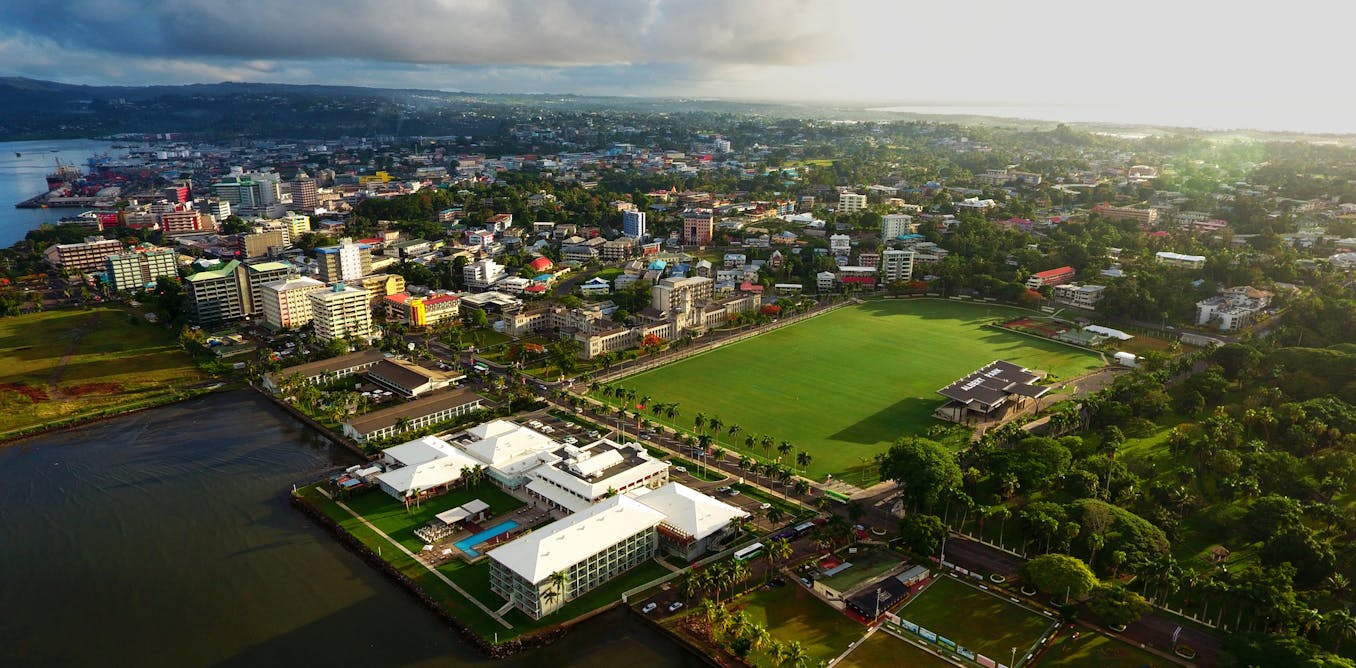Like many Pacific countries that depend on tourism, Fiji suffered during the peak years of the epidemic. But as tourism booms, another crisis threatens the stability of the island nation – fueled by a growing methamphetamine addiction.
Driven by foreign companies that use Fiji as a base of operations in New Zealand and Australia, the drug has also spread to local communities. On the other hand, it has increased the prevalence of HIV and placed an additional burden on the extended health and justice sectors.
Methamphetamine (meth) is known locally as “ice”, is highly addictive, widely available and continues to be associated with dangerous behaviour. Sharing needles, “chemsex” (using drugs to enhance sexual experiences) and a practice known as “bluetoothing” – drawing blood after a drug hit and injecting it into a second person – are all ‘ have been associated with a reduction in health symptoms.
With children under the age of nine being treated for alcoholism, and with crime statistics and reported cases of HIV and AIDS on the rise, police have called for a state of emergency to deal with the problem. related. But the police themselves have been accused of corruption in connection with the meth trade.
Drugs, health and crime
HIV cases are expected to double this year, with young people and disadvantaged communities disproportionately affected.
The link between meth use and HIV is very troubling. Methamphetamine weakens the immune system, making users more susceptible to infections. Adding to the problem, the stigma and discrimination associated with meth use and HIV means many are reluctant to seek help or get tested.
Compounding these twin problems is the appalling state of Fiji’s health facilities after years of neglect. Hospitals and clinics are underfunded, lacking modern equipment, and understaffed due to the exodus of health professionals.
These limitations have serious implications for patient care. And they reduce the capacity of the health system to respond to the increasing demand for complex services.
Health services are particularly lacking for drug rehabilitation, mental health care, and management of non-communicable diseases that account for an estimated 80% of premature deaths in Fiji.
A national disaster
The interaction between methamphetamine use, HIV and inadequately resourced health services creates a vicious cycle that exacerbates each issue.
Meth use increases crime, addiction and the risk of HIV infection, especially among young people. In turn, this puts more pressure on the already struggling health care system, as well as the police and law enforcement agencies.
In general, this situation leads to a further decline in the results of the development of the country of Fiji. Addressing these multiple threats will require a comprehensive and coordinated response.
By participating in the United Nations AIDS program, UNAIDS, there are plans to create such policies with the government, civil society, regional and international partners.
And in April of this year, the Pacific Rim Crime Resolution Strategy was launched. Interpol’s Blue Pacific project is supported by the Australian Federal Police, the New Zealand Police and the UK’s National Crime Agency. New Zealand also helped fund the establishment of the Fijian Counter Narcotics Center in July.
There is no quick or easy solution
But while such partnerships are important for combating the supply of meth and other drugs, they fall short of linking international drug crime to the domestic problems it causes.
New Zealand has pledged continued financial support for the development of health services. The Fijian government’s financial priorities will have to include improving medical facilities and equipment, and expanding training for health professionals.
Developing and implementing comprehensive prevention and treatment programs for meth addiction and HIV are also important. These should include widespread education campaigns, harm reduction strategies (such as needle exchange programs), and accessible screening and treatment services.
Empowering local communities to participate will lead to sustainable and culturally appropriate solutions. Reducing stigma and discrimination around meth use and HIV will be important.
Finally, collaboration with regional and global health organizations will provide much-needed technical and financial support. Other Pacific nations will be looking to Fiji to take the lead and prevent the crisis from spreading.
#Meth #addiction #HIV #complicated #health #system #creating #perfect #storm #Fiji
